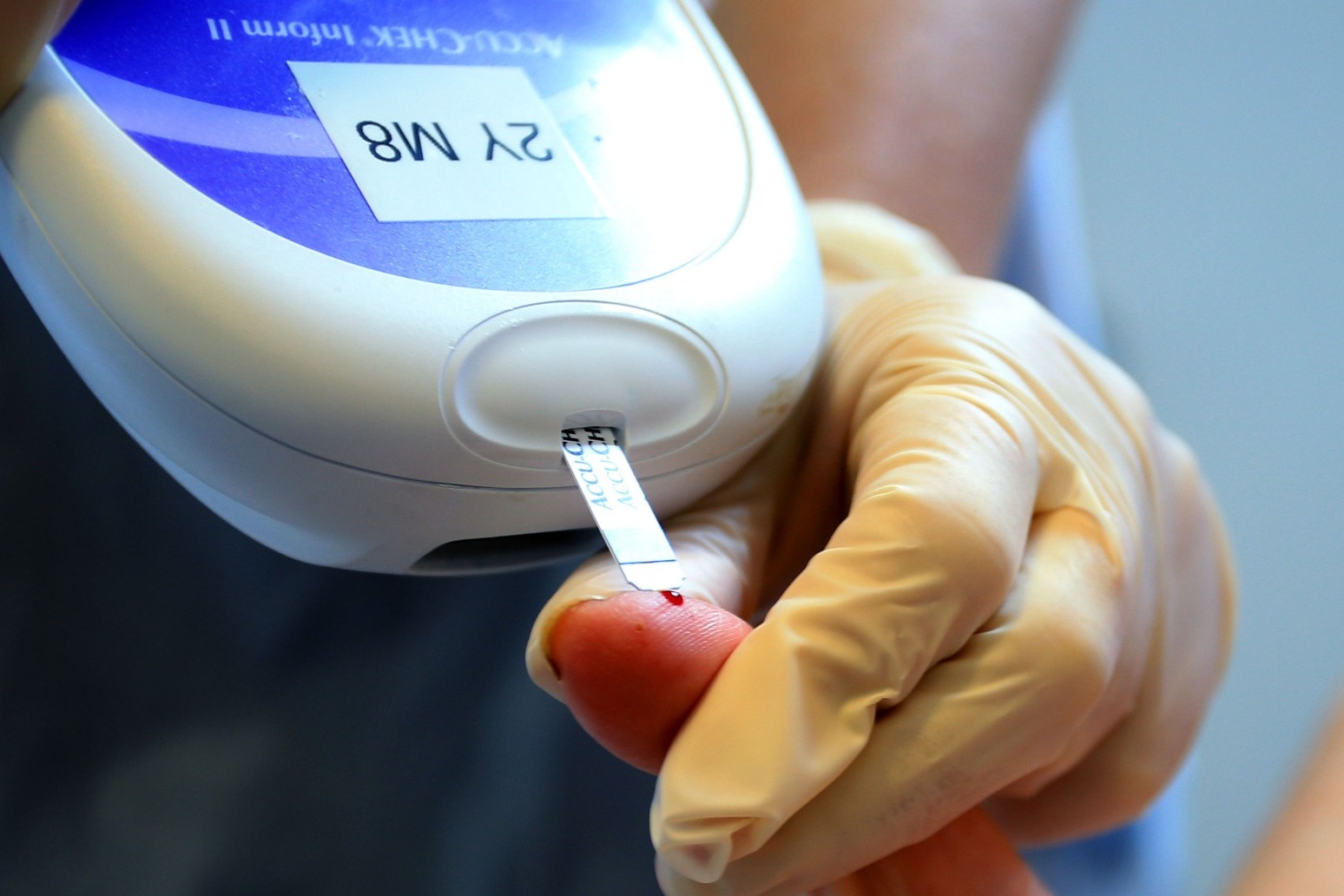-
 play_arrow
play_arrow
Kl 1 Radio Local radio for west Norfolk
-
 play_arrow
play_arrow
KL DISCO KL Disco Playing Disco Music from the 70's onwards.24/7
-
 play_arrow
play_arrow
KL COUNTRY KL COUNTRY Playing New and Classic Country Music 24/7
-
 play_arrow
play_arrow
KL ROX KL ROX The best of New and Classic Rock.24/7
-
 play_arrow
play_arrow
KL SUMMER Summer Vibes 24/7 from KL1 Radio across West Norfolk
-
 play_arrow
play_arrow
KL CLASSICAL Your Symphony Starts Here
-
 play_arrow
play_arrow
KL CHILL Just Chill!
-
 play_arrow
play_arrow
KL POP The Best POP Hits all day Long!
-
 play_arrow
play_arrow
KL XTRA KL XTRA
music_note

Podiatry researchers have been awarded almost £300,000 to trial an innovative way to tackle diabetes-related foot ulcers.
Ruth Barn, Gordon Hendry and Jodi Binning of Glasgow Caledonian University have been given £299,751 from the Scottish Government’s Chief Scientist Office for a research project that looks at the condition, particularly in areas of deprivation.
The team hopes treatment based on motivational interviewing will empower patients to make lifestyle changes in order to reduce the likelihood of developing foot ulcers.
Such ulcers can lead to a number of more severe health problems, including amputation and even death in extreme cases.
Foot ulcers appear below the ankle and affect 19-34% of people with diabetes. They are more common in areas of multiple deprivation.
Areas suffering from multiple deprivation typically have high crime rates, poor education, high unemployment and poor health among the population.
Previous research led by the university found people with diabetes in the most deprived areas are four to five times more likely to experience a foot ulcer, amputation or death.
Dr Barn said: “Current treatment approaches are not effective. People with diabetes are well informed about their condition but this does not necessarily lead to behaviour change.
“We have developed a new treatment based on motivational interviewing – a way of having a conversation with a person that helps them understand their reasons and barriers to positive lifestyle change, and supports adoption of new behaviours, or stopping unhelpful behaviours, to prevent foot ulcers.
“This approach has previously been successful for people attending services in other areas such as addictions, long-term condition management and weight loss.
“Our aim is to undertake a small trial, comparing motivational interviewing to current care, to find out if a larger trial is possible and worth doing.
“We hope that this intervention could empower people with diabetes and foot ulceration, leading to improved self-care, and reduced ulceration and amputation rates, in the long run.”
The three-year pilot is a collaboration with the Greater Glasgow and Clyde, Tayside, Ayrshire and Arran, and Lanarkshire health boards.
The researchers will be training podiatrists on how to deliver motivational interviewing, specifically for people with diabetes who are at greatest risk of developing complications related to their condition.
Dr Binning, who is also podiatry services manager at NHS Ayrshire & Arran, carried out research as part of her PhD which found motivational interviewing is effective and had encouraging results from patients from areas of deprivation in Glasgow.
She said: “People involved in the study said that the approach is more individualised and feels different. Of the 17 people who took part, 15 reported positive behaviour changes”.
Dr Hendry added: “While motivational interviewing intervention is focused on behaviour change, the actual outcome we are interested in reducing is the number of ulcers that people develop during that follow up period.
“As little as a 10% reduction in ulceration rate could bring significant cost benefits to the NHS and would be enough to justify a much larger future trial.
“It’s possible that a little bit of behaviour change chosen and driven by patients themselves, with the support of highly trained podiatrists, will have a tangible effect on reducing ulceration and amputation rates in a group that has greater need.”
A Scottish Government spokesperson said: “Diabetes is a clinical priority for the Scottish Government and by funding this innovative pilot we hope that progress can be made in tackling diabetes-related foot ulceration in some of the country’s most deprived areas.
“We know that diabetes remains a significant health challenge and a leading cause of ill health in Scotland.
“In February 2021, we updated our Diabetes Improvement Plan which sets out our priorities and commitments to improve the prevention, treatment and care for everyone living with diabetes in Scotland.
“The plan contains a specific commitment to support ongoing work to improve outcomes for people with foot disease and we look forward to the outcomes of this important project.”
Published: by Radio NewsHub

Similar posts
Upcoming shows

80’s ’til 8
7:00 pm - 8:00 pm

John Atkins – Sunday 60’s and 70’s
8:00 pm - 11:00 pm

Night Trax
12:00 am - 7:00 am

Paul Baker – KL1 Breakfast
7:00 am - 10:00 am

Chris Fisher – KL1 Mornings
10:00 am - 1:00 pm
Message Us
Copyright The Mediasite UK - 2025








